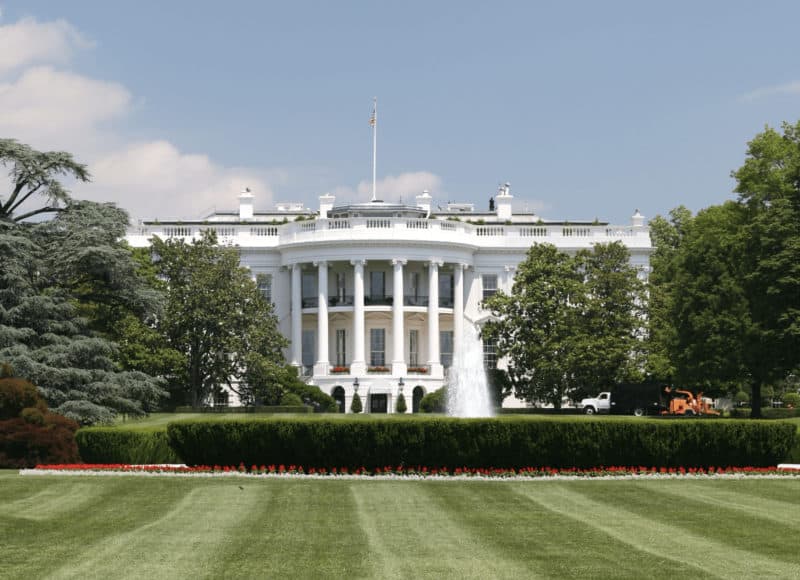You would have to look long and hard in the dim, disappointment-darkened lengths of Michael Wolff’s White House to find the women. There is the stench of stale male stress sweat; the dispiritedness of pent-up testosterone, of ambitions dashed and intrigues exposed; there is even the corpulent President, munching on burgers and watching TV. But there are hardly any women. Where ordinarily this would be a cause for concern, yet another indication of the galling persistence of misogyny well into yet another century, it is in this instance a small reprieve. Fortune has done little for women, even less for feminists, so one cannot but be grateful for the bits it tosses one’s way. Being spared a part in one of the most fetid and retch-incurring episodes of American political depravity seems to be one of them.
The women that are present in Wolff’s White House take their time to appear. Ivanka, the latter half of the cattily coined “Jarvanka,” does not make her appearance until nearly the fourth chapter. Her entrance scene, smarmily reconstructed in America’s most-read pages of the moment, is the sort one would expect: daddy’s little plotter waltzing into the Four Seasons for a breakfast meeting. It is a victory march to the princess throne for the girl-woman, as she walks amid tables of DC notables, benevolently accepting their business cards as she barks orders into a phone. She comes to impress and seek allies; the one selected for recruitment that day is another woman, Dina Powell, who will soon join the locker-room White House over which Ivanka’s Daddy presides.
If Ivanka, her presidential aspirations notwithstanding, is the saccharine schemer with symmetrical looks and private residence access, then her nemesis is Kellyanne Conway. Dubbed “nails” by Jarvanka, who are appalled at her “vulgarity” and Cruella de Vil manicures, she pretends to be the president’s “protector, defender and handler” on camera while rolling her eyes at his idiocy in private. Conway, to the delight of the conservatives whose cable news darling she had hoped to become (prior to Trump’s alarming victory) calls herself, in the tradition of the Coulters and Ingrahams, an “anti-feminist”—or rather, as Wolff tells it, “she thinks feminists are anti-feminists, ascribing her own (successful) methods and temperament to ‘being a wife and mother.’” As expected, her first order of business after establishing herself in the White House is to ramp up efforts at securing her husband, a lawyer, a post in the administration. Like Ivanka, she too is a graduate of the School of Husband Advancement.
But where Conway merely graduates, Ivanka is magna cum laude. Her machinations on behalf of Jared (whose family pedigree she considers superior to her own) are in a class by themselves. There is little flattering in these pages about the first daughter, who, all incestuous insinuations intended, wants to be seen as the First Lady. The only matter in which Ivanka trumps Jared is in the private deal the two have reached: She, not he, will run for president first. Ah, the heady hubris of those imagining themselves America’s newly enthroned political royalty.
And yet the revelation of the deal is not the surprise. In the deep trough of obsequious feminine submission that Fire and Fury recounts, this small thing, an arrogant heiress’s pretensions at the Presidency, becomes a moment of, if not victory, then perhaps decrepit relief. In this archaic parallel realm of chaos, where Ann Coulter is the voice of reason, at least the idea of a woman doing something before a man is not completely off the table.
Wolff’s picture of Hope Hicks—ever eager to please, sponsored by Ivanka and adored by Trump—doesn’t arrive until almost two-thirds of the way into the book. She simpers and second-guesses and always demurs; in Wolff’s words, she is “a Stepford factotum” who is “absolutely dedicated” and “devoted” to Mr. Trump. Dubbed the “real” first daughter (remember, Ivanka is the “real” first lady), she is nevertheless subject to Trump’s lewd aspersions. She dramatically runs off crying when Trump lasciviously forbids her to “do anything more” for Corey Lewandowski, her one-time lover, calling her the “the best piece of tail he’ll ever have.” There is no hope there, however; like all other insults, this too is borne and buried away.
There is no definitive guide to how one can be a feminist. The vastness of experience and context and circumstance make such a how-to impossible. In Wolff’s odd and gossipy volume of political dish and caustic commentary, however, American women can find a good guide of who and what to never be. As Wolff recounts it, the survival strategy of the women who “make it” in the Trump White House is to treat him as if he was special, “extra-special.” They “cater to his peculiar whims, rhythms prejudices and often inchoate desires” and are “tolerant of or oblivious to or amused by or steeled against his casual misogyny and constant sexual subtext.” If there was ever a definition of anti-feminist, ever an encapsulation of what a woman must never do, then here it is: The three hundred-odd pages of Fire and Fury.
